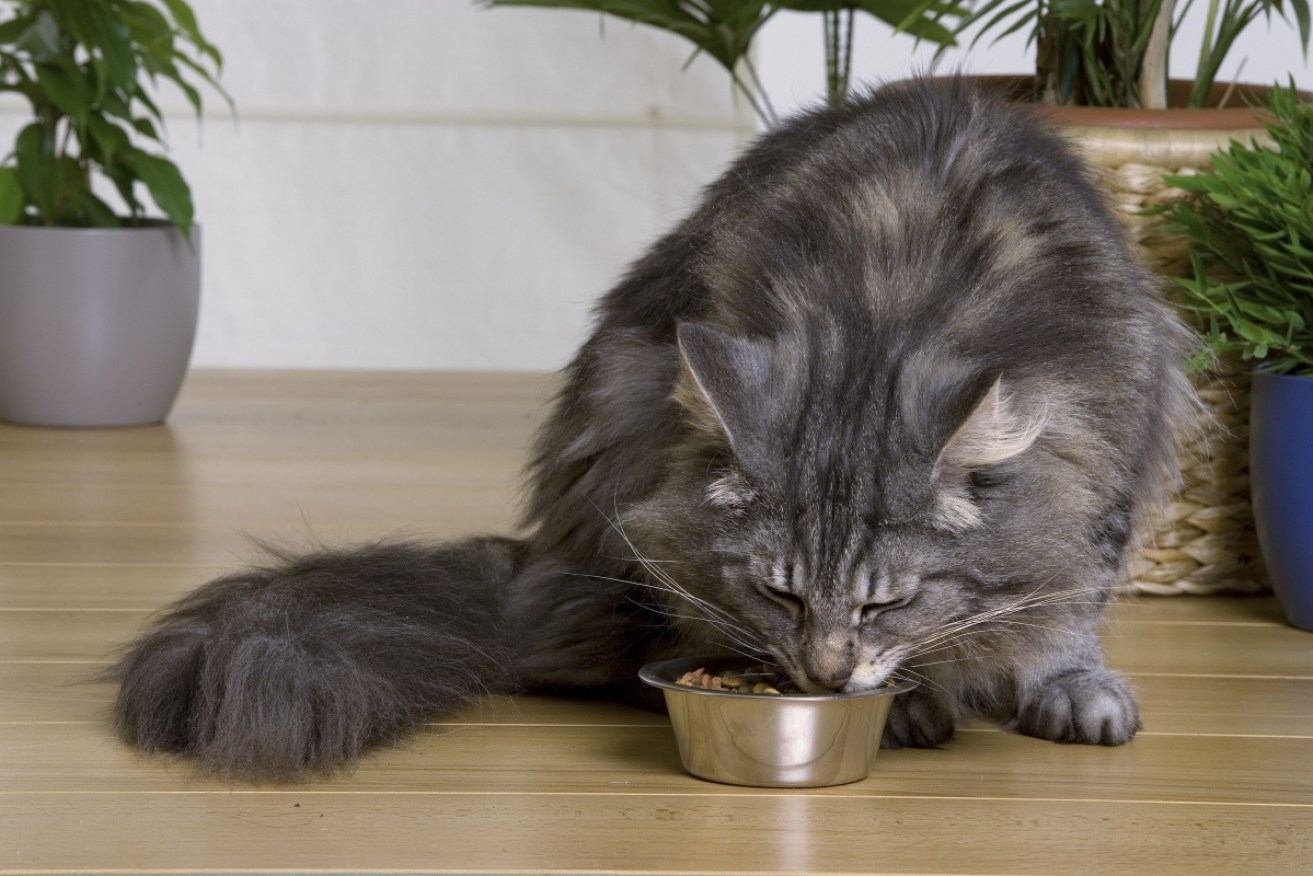Some cat food brands could cause ‘severe illness’

AAP
A number of commercial pet food brands sold in supermarkets may cause “severe illness or injury” to adult cats, a Sydney University study has found.
The peer reviewed study, published in the Australian Veterinary Journal, tested 20 supermarket or pet store products.
Nine of them did not adhere to the Australian standards in regards to their “guaranteed analysis” claims.
• Cat-scented fabric spray and the real-life castaway
• Russia’s military dolphins and other animals with important jobs
• Why adopting a dog could make men sexier
Eight products did not adhere to the standards in regards to nutrient content for adult cats because they had too much, or too little, protein and fat.
The study found some of these products could cause lameness, diabetes, obesity or anaemia.

Owners, vets and the cat food industry have been left wondering which brands are harmful. Photo: ABC
Neither the authors of the study, the University or the Australian Veterinary Journal would release the names of the offending brands of pet food.
Even the $2 billion-a-year pet food industry is calling for the release of the products’ names.
Duncan Hall from the Pet Food Industry Association said: “We do want to know more. We have flagged it with members.
“Of course we have concerns with regards to findings where the nutrient levels are not what is expected, and certainly the degree of some of those changes are a surprise,” he said.
The study has also left some of Australia’s two million cat owners wanting the brand names made public.
“If they’ve found something wrong with a particular food, well yes, they should be named and the people then have a choice to go with that company,” said Sydney cat owner Matthew Geftakis.
Anne Jackson, editor of the Australian Veterinary Journal, told the ABC the study was only “preliminary” and “cannot be relied upon until confirmed by large, formal trials”.
She said that was why “it would be inappropriate for the authors to include the names of the companies”.
The University told the ABC it was a pilot study led by a master’s student and completed as part of her thesis.
“It would be both inappropriate and irresponsible to name the commercial companies involved until the results are replicated in a full-scale study using much larger sample sizes,” wrote the University’s media manager, Verity Leatherdale.
In fact while the study was led by a masters student, the three co-authors include internationally renowned professor David Raubeheimer.
Withholding brand names ‘absurd’
Sydney veterinarian Tom Lonsdale, a fierce critic of the pet food industry, does not agree with the University’s reasoning.

Sydney vet Dr Lonsdale says Sydney University should stand by its study. Photo: ABC
“That’s absurd. If they were going to stand by what they wrote then they would be prepared to publish the names,” Dr Lonsdale said.
Dr Lonsdale, who is a proponent of raw food diets, said the university seemed to be backing away from its research.
“It’s ridiculous now to start to denigrate their own research project,” he said.
“I mean they must have spent endless hours in the lab and quite a lot of money and then gone through the peer review process to make sure this is kosher or authentic and fit for public consumption.
“So for them to now turn around and say, ‘well actually we don’t stand by our own work’ is absurd.”
The University of Sydney said the cat food study “did not receive any commercial funding” and denied suggestions researchers received any benefit from the pet food industry in relation to this study.
Sponsorship between university, pet food companies revealed
Doctor Tom Lonsdale said that was not the case.

The university may be influenced by contracts with premium pet food companies. Photo: ABC
“I don’t think they are at liberty to deny that, because it’s in the documents,” he said.
Using freedom of information, Dr Lonsdale said he uncovered extensive sponsorship arrangements between pet food companies Hills and Royal Canin and the University of Sydney.
In addition to organising and paying for conferences, free lab coats for students, and subsidised pet food for the uni vet clinic, the university also agreed to provide Hills Pet Food with “Research Engagement with Charles Perkins Chair in Comparative Nutrition”.
The Charles Perkins Chair in Nutritional Ecology is comparative nutritionist Professor David Raubenheimer, one of the four authors of the study. He is also a globally recognised scientist.
In a statement to the ABC, the University of Sydney said “Hills did not proceed” with engaging Professor Raubenheimer in any research.
–ABC








